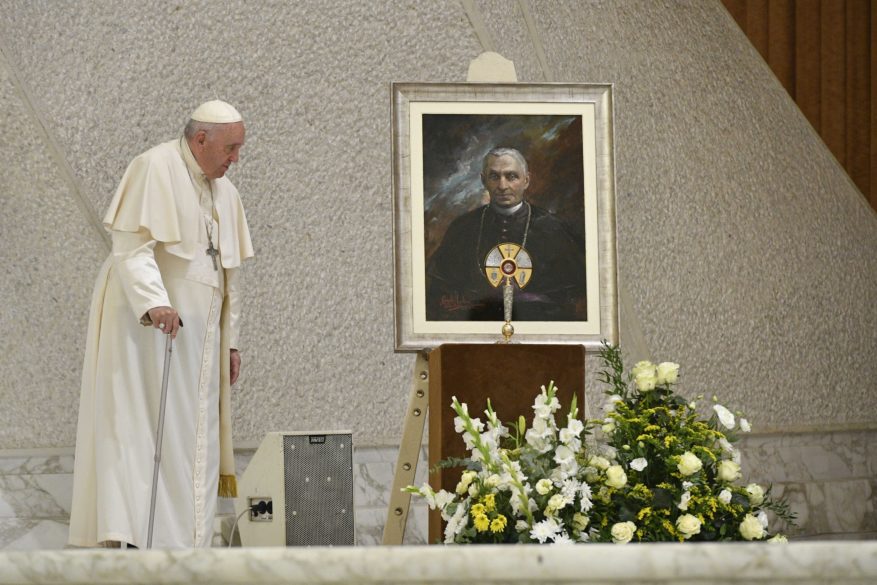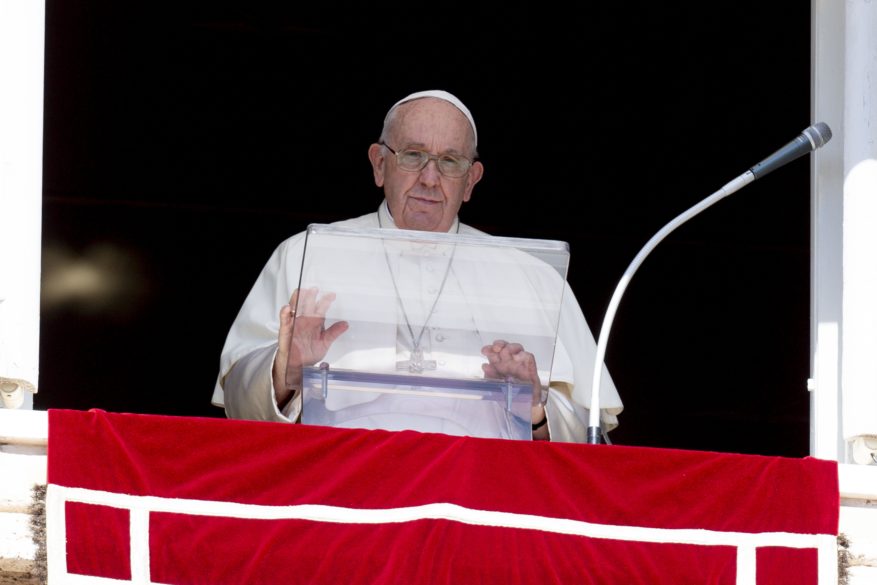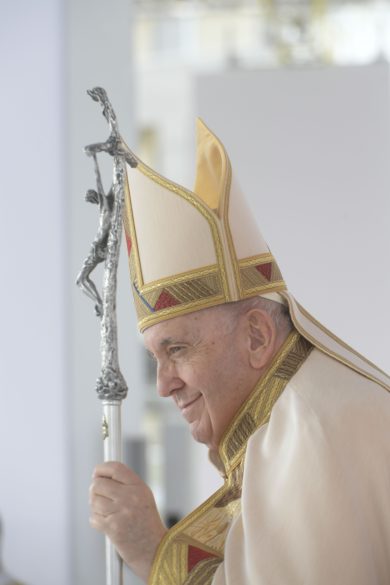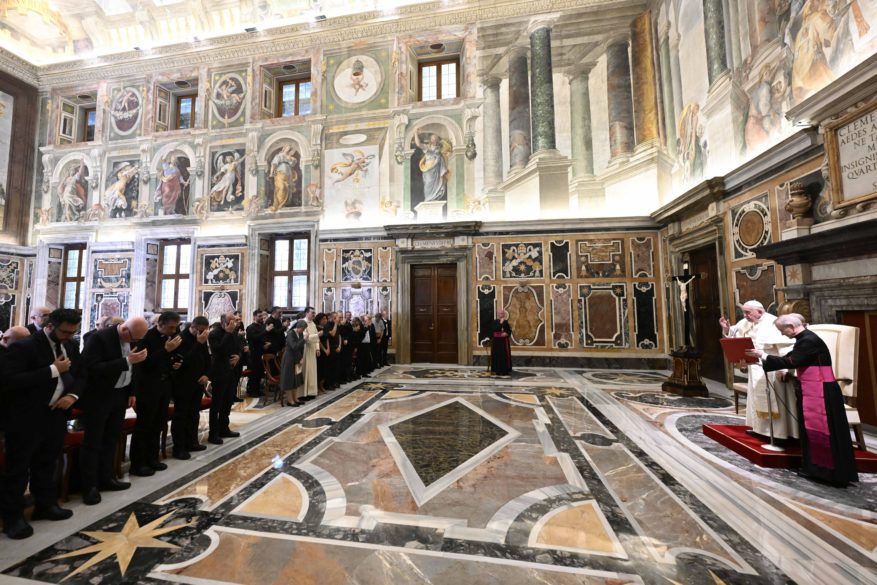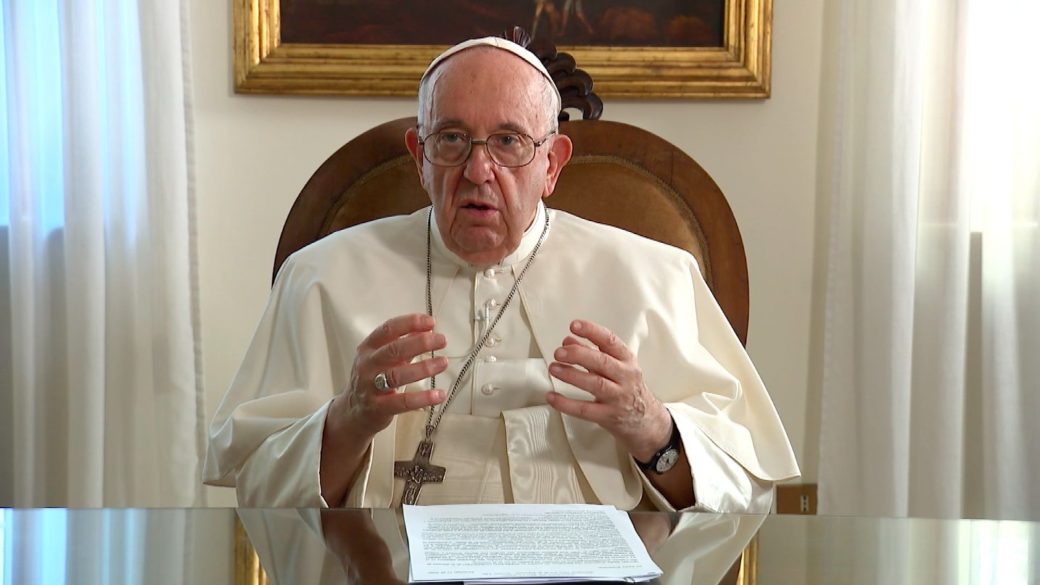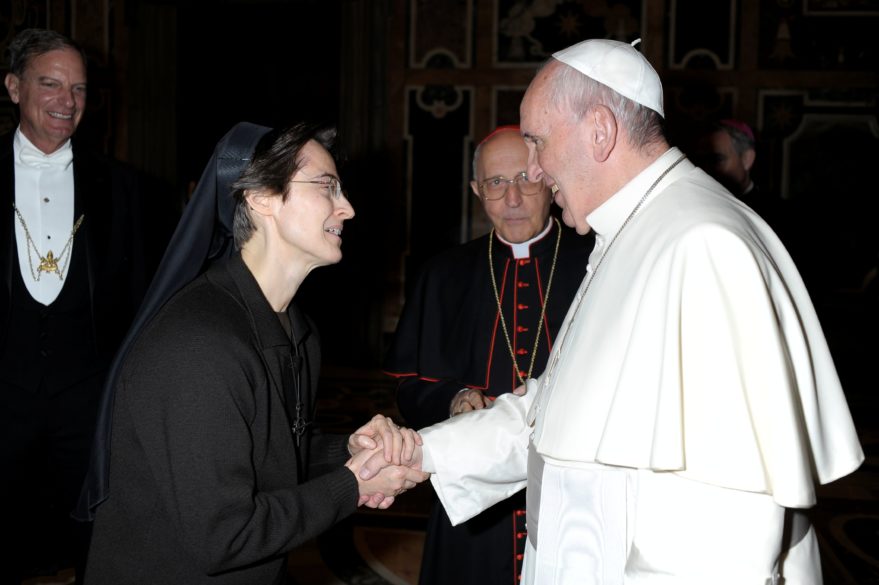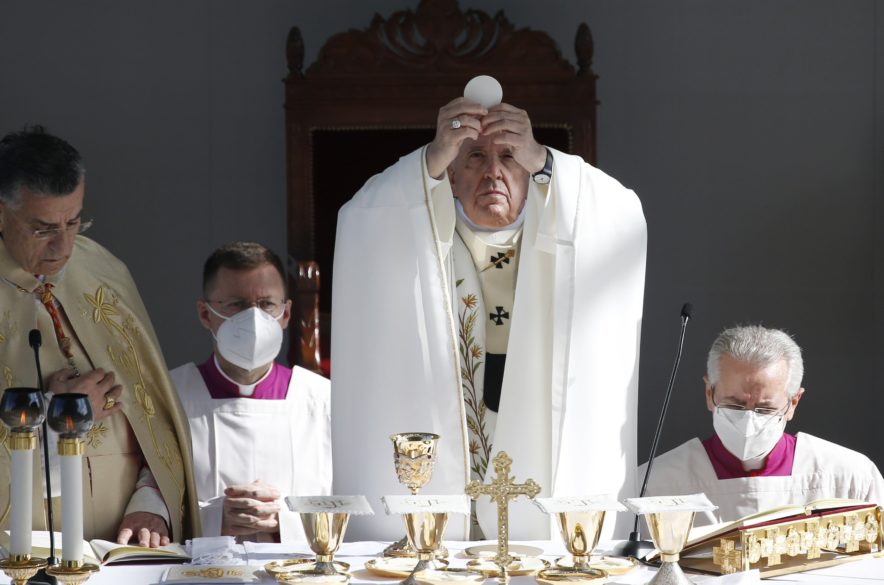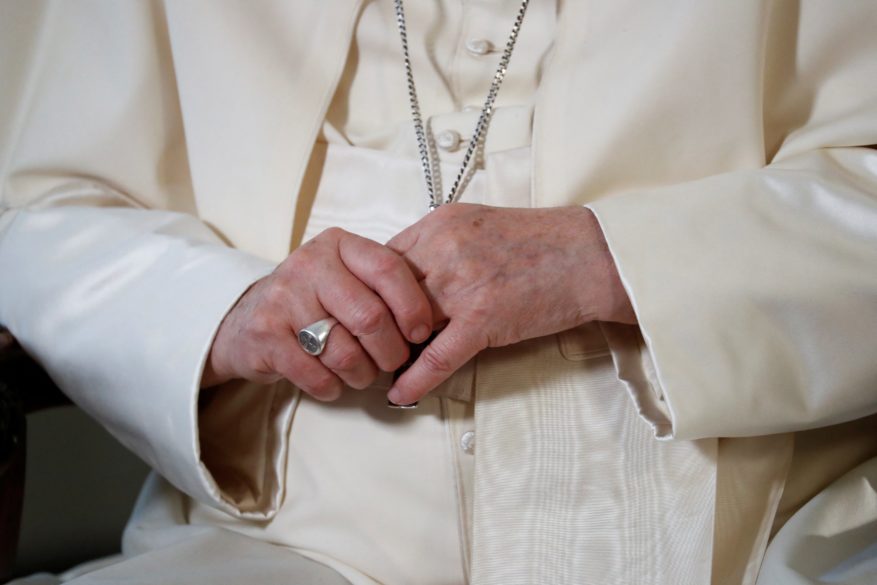Por Cindy Wooden
Catholic News Service
CIUDAD DEL VATICANO (CNS) — El Concilio Vaticano II fue la respuesta de la Iglesia Católica universal al amor de Dios y al mandato de Jesús de apacentar a sus ovejas, dijo el papa Francisco, celebrando el 60 aniversario de la apertura del concilio.
El concilio recordó a la iglesia lo que es “esencial”, dijo el papa: “una iglesia locamente enamorada de su Señor y de todos los hombres y mujeres a quienes él ama”, que “es rica en Jesús y pobre en bienes”, una iglesia que “sea libre y liberadora”.
El papa Francisco presidió la misa del 11 de octubre en la Basílica de San Pedro, donde se celebraron las sesiones del consejo en cuatro sesiones de 1962 a 1964. La fecha también es la fiesta de San Juan XXIII, quien convocó e inauguró el consejo; la urna de vidrio que contenía su cuerpo fue trasladada al centro de la basílica para la liturgia.
La lectura del Evangelio en la Misa relata que Jesús le preguntó a San Pedro: “¿Me amas?” y diciéndole: “Apacienta mis ovejas”.
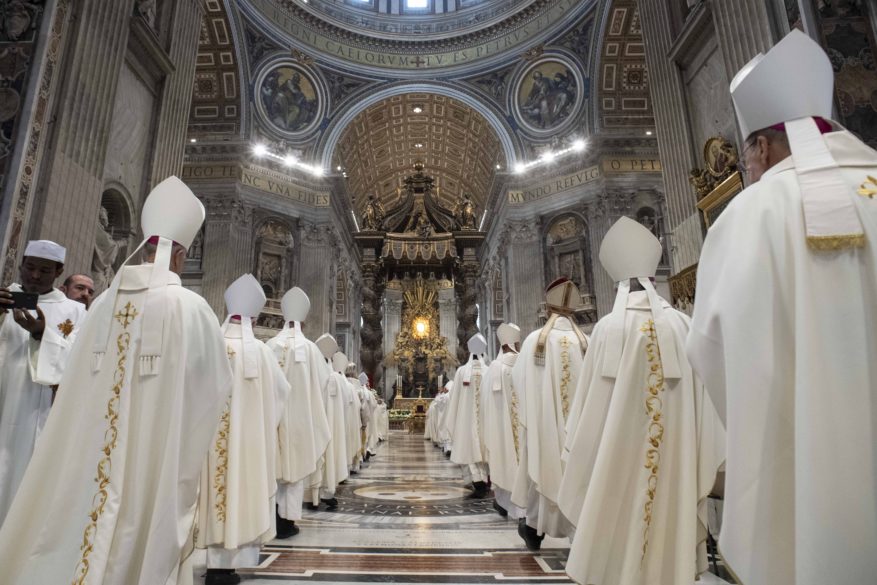
En su homilía, el papa dijo que el concilio fue la respuesta de la iglesia a esa pregunta y marcó un esfuerzo renovado para alimentar a las ovejas de Dios, no solo a los católicos, sino a todas las personas.
Los debates que siguieron al concilio y continúan hoy son una distracción de la misión de la iglesia, dijo el papa Francisco.
“Siempre estamos tentados a partir de nosotros mismos en lugar de Dios, a anteponer nuestras agendas al Evangelio, a dejarnos llevar por los vientos de la mundanalidad para seguir las modas del momento o dar la espalda al tiempo que la providencia nos ha concedido”, dijo.
Los católicos deben tener cuidado, dijo, porque “tanto el ‘progresismo’ que se alinea detrás del mundo como el ‘tradicionalismo’ que anhela un mundo pasado no son evidencias de amor, sino de infidelidad”, formas de “egoísmo que pone a nuestros propios gustos y planes por encima del amor que agrada a Dios, el amor sencillo, humilde y fiel que Jesús le pidió a Pedro”.
“Una iglesia enamorada de Jesús no tiene tiempo para peleas, chismes y disputas”, dijo el papa. “Que Dios nos libre de ser críticos e intolerantes, duros y enojados. Esto no es una cuestión de estilo sino de amor”.
Jesús, el buen pastor, “quiere que su rebaño esté unido bajo la guía de los pastores que él les ha dado”, dijo el papa, pero al diablo le encanta sembrar división; “no cedamos a sus señuelos ni a la tentación de la polarización”.
“Con qué frecuencia, tras el concilio, los cristianos prefirieron tomar partido en la iglesia, sin darse cuenta de que estaban rompiendo el corazón de su madre”, el corazón de su madre, la iglesia, dijo el papa Francisco.
¿Con qué frecuencia, preguntó, preferían “estar a la ‘derecha’ o a la ‘izquierda’ en lugar de estar con Jesús? Presentarse como ‘guardianes de la verdad’ o ‘pioneros de la innovación’ en lugar de verse a sí mismos como humildes y agradecidos hijos de la Santa Madre Iglesia?”
El concilio, dijo, enseñó a la iglesia a ver el mundo que la rodea y a compartir el amor de Dios con todos, sabiendo que “si corresponde mostrar una preocupación particular, debe ser por aquellos a quienes Dios más ama: los pobres y los descartados”.
Con la presencia de representantes ortodoxos, anglicanos y protestantes, como lo estaban en el concilio, el papa Francisco también rezó para que crezca “el anhelo de unidad” dentro de cada Cristo, “el deseo de comprometernos en la plena comunión entre todos los que creen en Cristo”. “
Agradeciendo a Dios por el don del concilio, el papa pidió al Señor que “nos salve de las formas de polarización que son obra del diablo. Y nosotros, tu iglesia, con Pedro y como Pedro, ahora te decimos: ‘Señor, tú sabes todo, sabes que te amamos.'”
El papa Francisco, quien fue ordenado sacerdote en 1969, es el primer papa ordenado después del Concilio Vaticano II. Su predecesor inmediato, el ahora jubilado papa Benedicto XVI, asistió a las cuatro sesiones del concilio como asesor teológico, un “perito”, del arzobispo de Colonia, Alemania. San Juan Pablo II participó en las cuatro sesiones como miembro de pleno derecho del cuerpo, primero como obispo auxiliar de Cracovia, Polonia, y luego como arzobispo de la ciudad.
Entre los más de 400 sacerdotes que concelebraron la Misa, la oficina litúrgica del Vaticano dijo que había cinco presentes en el Vaticano II.
Según los sitios web GCatholic.org y catholic-hierarchy.org, hoy en día hay seis obispos vivos en el mundo que participaron en al menos una sesión del Concilio Vaticano II. Entre ellos está el cardenal nigeriano Francis Arinze, un ex funcionario del Vaticano de 89 años que fue ordenado obispo en 1965 y asistió a la última sesión del consejo; fue uno de los concelebrantes en la Misa de aniversario.
Antes de la Misa, se leyeron pasajes del discurso de San Juan XXIII en la apertura del concilio. Conocido por sus primeras palabras en latín, “Gaudet Mater Ecclesia”, el discurso comienza: “La Madre Iglesia se regocija”.
También se leyeron selecciones de las cuatro constituciones del consejo. El papa Francisco ha pedido a los católicos que se preparen para el Año Santo 2025 releyendo y estudiando los documentos: Constitución sobre la Sagrada Liturgia (“Sacrosanctum Concilium”) ; Constitución Dogmática sobre la Iglesia (“Lumen Gentium”); Constitución Dogmática sobre la Revelación Divina (“Dei Verbum”); y Constitución Pastoral sobre la Iglesia en el Mundo Moderno (“Gaudium et Spes”).

